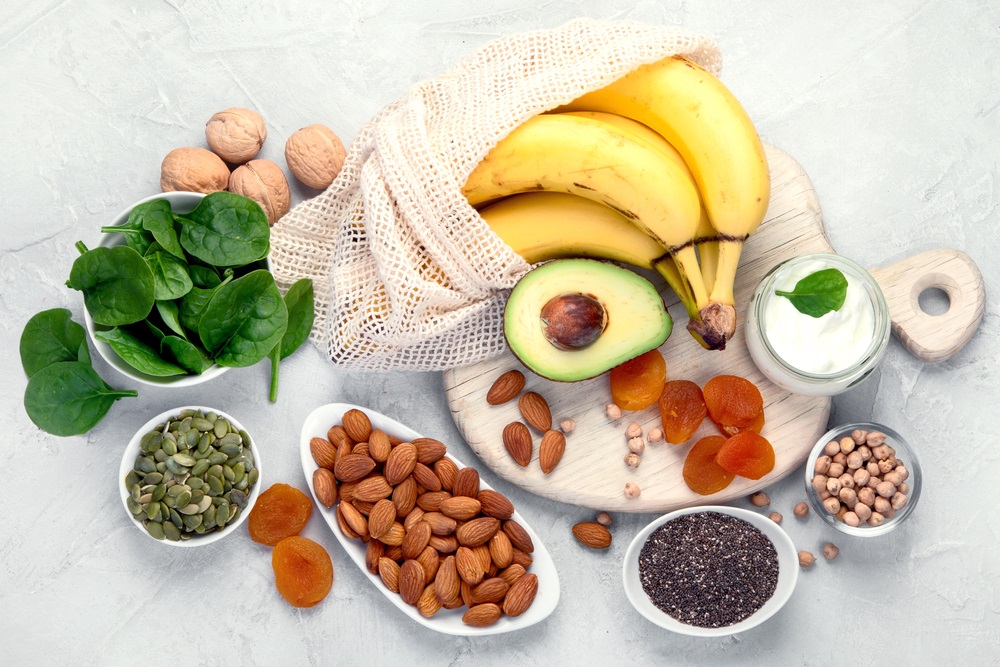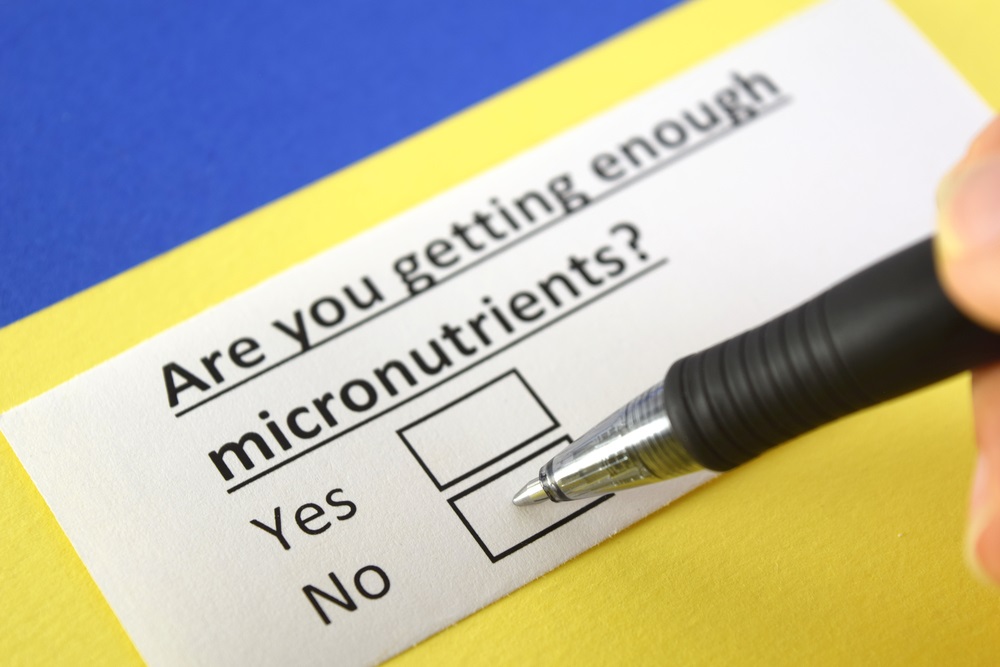
In our quest for a healthy lifestyle, we often come across the term “nutrients.” But…
- What exactly are nutrients?
- Why are they so important for our bodies? and
- What are the six essential nutrients
Basic nutrients are substances found in food that are essential for growth, development, and overall well-being. They provide the building blocks for our cells, support bodily functions, and help maintain optimal health.
In this article, we will explore the 6 essential nutrients that your body needs, their sources, functions, and the health benefits they offer.
Why are Nutrients Important for the Body?
Basic nutrients are crucial for sustaining excellent well-being. The human body requires 6 nutrients to maintain optimal health and function. Here are some key reasons why nutrients in food are important:
- Energy Production: Nutrients provide the energy needed for physical activity, growth, and metabolism.
- Growth and Development: Nutrients in food support the growth and development of tissues, organs, and overall body structure.
- Maintenance and Repair: Nutrients help maintain and repair cells, tissues, and organs that undergo wear and tear.
- Immune Function: Nutrients support a healthy immune system, helping to fight off infections and diseases.
- Cognitive Function: Nutrients play a crucial role in brain development, memory, concentration, and overall cognitive function.
- Overall Well-being: The 6 nutrients in food contribute to overall well-being by preventing nutrient deficiencies and promoting optimal health.
Macronutrients vs. Micronutrients
What are the nutrients that contribute to a healthy and balanced diet?
These 6 essential nutrients are broadly categorized into macronutrients and micronutrients.
- Macronutrients are nutrients that the body requires in large quantities. They include proteins, carbohydrates, and fats, and they provide energy (calories) to fuel the body.
- Micronutrients are nutrients in food that the body needs in smaller amounts. They include vitamins and minerals, and they are essential for various physiological functions, such as maintaining a healthy immune system and supporting enzyme activity.
Now, let’s delve into each of the essential nutrients, their sources, functions, and health benefits.
Major Food Nutrients || Sources & Functions
A. Macronutrients

1. Protein
The first component of 6 nutrients. Proteins are the building blocks of life, playing a crucial role in the growth, repair, and maintenance of tissues in the body. They are made up of amino acids, which are essential for the synthesis of enzymes, hormones, and antibodies. Here are the main functions and health benefits of protein:
Main Functions
- Building and repairing tissues
- Enzyme and hormone production
- Antibody formation for a strong immune system
- Transportation of important nutrients and oxygen in the blood
Health Benefits
- Helps regulate blood sugar levels
- Supports muscle growth and recovery
- Promotes healthy hair, skin, and nails
- Provides a feeling of fullness, aiding in weight management
Major Food Sources
| Food | Protein (100g) |
| Chicken Breast | 31g |
| Greek Yogurt | 10g |
| Lentils | 9g |
| Quinoa | 4g |
| Tofu | 8g |
| Eggs | 13g |
| Almonds | 21g |
| Salmon | 22g |
| Cottage Cheese | 11g |
| Black Beans | 8g |
2. Carbohydrates
Carbohydrates are the body’s primary source of energy. They are broken down into glucose, which fuels our cells, muscles, and brain. Carbohydrates also play a role in maintaining proper organ function. Here are the main functions and health benefits of carbohydrates:
Main Functions
- Energy production
- Storage of energy for future use
- Facilitation of brain and nervous system function
Health Benefits
- Sustains energy levels throughout the day
- Supports physical performance during exercise
- Provides essential fibre for a healthy digestive system
Major Food Sources
| Food | Carbohydrates (100g) |
| Brown Rice | 23g |
| Sweet Potato | 20g |
| Oats | 56g |
| Whole Wheat Bread | 45g |
| Quinoa | 21g |
| Bananas | 22g |
| Apples | 11g |
| Oranges | 12g |
| Beans | 63g |
| Lentils | 20g |
3. Fats
Fats often receive a bad reputation, but they are an essential nutrient required for various bodily functions. They provide a concentrated source of energy and aid in the absorption of fat-soluble vitamins. Here are the main functions and health benefits of fats:
Main Functions
- Energy storage
- Protection of organs
- Insulation and temperature regulation
- Absorption of fat-soluble vitamins (A, D, E, and K)
Health Benefits
- Regulate hormone production
- Supports brain function and memory
- Assists in the absorption of fat-soluble vitamins
- Provides a sense of satiety and satisfaction after meals
Major Food Sources
| Food | Fats (100g) |
| Avocado | 14g |
| Olive Oil | 100g |
| Almonds | 49g |
| Chia Seeds | 31g |
| Salmon | 13g |
| Peanut Butter | 50g |
| Coconut Oil | 100g |
| Flaxseeds | 42g |
| Cashews | 44g |
| Cheese (Cheddar) | 34g |
B. Micronutrients

4. Vitamins
Vitamins are basic nutrients for normal growth, development, and overall health.
Main Types
Water-soluble vitamins: These vitamins play essential roles in energy metabolism, immune function, and the formation of collagen and red blood cells.
Fat-soluble vitamins: These vitamins are crucial for vision, bone health, cell growth, and immune function.
Health Benefits:
- Boosts immune system
- Supports healthy skin and hair
- Enhances vision and eye health
| Vitamin | Main Functions | Major Food Sources |
| Thiamin (B1) | Energy metabolism | Whole grains, legumes, pork |
| Riboflavin (B2) | Energy metabolism, antioxidant | Dairy products, leafy greens, eggs |
| Niacin (B3) | Energy metabolism, cellular repair | Meat, fish, nuts, seeds |
| Pantothenic acid (B5) | Energy metabolism | Avocado, chicken, broccoli |
| Pyridoxine (B6) | Protein metabolism, brain development | Poultry, fish, bananas, spinach |
| Biotin (B7) | Energy metabolism, healthy hair and nails | Eggs, nuts, seeds |
| Folate (B9) | DNA synthesis, cell growth | Leafy greens, legumes, citrus fruits |
| Cobalamin (B12) | Nerve function, red blood cell production | Meat, fish, dairy products |
| C (ascorbic acid) | Antioxidant, collagen synthesis | Citrus fruits, berries, peppers |
| A | Vision, immune function, cell growth | Carrots, sweet potatoes, spinach |
| D | Bone health, calcium absorption | Sunlight (vitamin D synthesis), fatty fish, fortified dairy products |
| E | Antioxidant, cell protection | Nuts, seeds, vegetable oils |
| K | Blood clotting, bone health | Leafy greens, broccoli, soybeans |
5. Minerals
Minerals are basic nutrients for various bodily functions, such as nerve transmission, fluid balance, and bone health.
Main Types
Macro minerals: These minerals are needed in larger amounts and play vital roles in maintaining fluid balance, nerve function, and bone health.
Trace minerals: Although required in smaller quantities, trace minerals are essential for enzyme function, immune support, and the production of hormones.
Health Benefits
- Supports strong bones and teeth
- Maintains electrolyte balance
- Aids in oxygen transport
| Mineral | Major Functions | Major Food Sources |
| Sodium | Fluid balance, nerve function | Table salt, processed foods |
| Chloride | Fluid balance, digestive health | Salt, seaweed, olives |
| Potassium | Nerve function, muscle contractions | Bananas, potatoes, avocados |
| Calcium | Bone health, muscle function | Dairy products, leafy greens, tofu |
| Phosphorus | Bone health, energy metabolism | Meat, dairy products, legumes |
| Magnesium | Nerve function, energy production | Nuts, seeds, leafy greens |
| Sulphur | Protein synthesis, detoxification | Garlic, onions, cruciferous vegetables |
| Iron | Oxygen transport, enzyme function | Red meat, spinach, lentils |
| Zinc | Immune support, wound healing | Seafood, lean meat, legumes |
| Iodine | Thyroid function, metabolism | Seafood, iodized salt, dairy products |
| Selenium | Antioxidant, thyroid function | Brazil nuts, seafood, eggs |
| Copper | Iron metabolism, collagen production | Shellfish, liver, nuts |
| Manganese | Bone health, antioxidant | Whole grains, nuts, legumes |
| Fluoride | Dental health, bone strength | Fluoridated water, seafood, tea |
| Chromium | Blood sugar regulation | Broccoli, grapes, whole grains |
| Molybdenum | Enzyme function, metabolism | Legumes, grains, leafy greens |
6. Water
Water is often overlooked as part of the important nutrients, but it is essential for overall health and proper bodily function. It makes up a significant portion of our body weight and is involved in various metabolic processes.
Main Functions
Hydration: Water is essential for maintaining proper hydration levels in the body.
Temperature regulation: Water plays a crucial role in regulating body temperature.
Nutrient transport: Water helps transport nutrients to cells and facilitates the removal of waste products.
Health Benefits
- Promotes healthy skin
- Enhances cognitive function
- Facilitates digestion and nutrient absorption
How Are These Nutrients Used By Your Body?

Nutrients in food serve a specific purpose in the body and are utilized differently. Here’s a brief overview of how these 6 essential nutrients are utilised by the body:
Proteins: Broken down into amino acids, which are used for building and repairing tissues, producing enzymes, and supporting various bodily functions.
Carbohydrates: Broken down into glucose, which is the primary source of energy for the body.
Fats: Broken down into fatty acids, which provide a concentrated source of energy and are used for insulation, protection, and hormone production.
Vitamins: Act as coenzymes, assisting in various metabolic processes and supporting overall health.
Minerals: Assist in enzyme function, fluid balance, and bone health, among other crucial bodily functions.
Water: Participates in almost all metabolic processes, regulates body temperature, and ensures proper hydration.
Easy Way to Get Your Daily Nutrients
A well-balanced diet rich in nutrients is an essential for a healthy body. Incorporating all 6 essential nutrients into your daily meals doesn’t have to be complicated.
To ensure you’re getting an adequate intake of these essential nutrients, you can follow the My Plate Method, which provides a visual representation of a balanced meal.
Here’s how you can structure your everyday meals to incorporate all 6 essential nutrients.
My Plate Method
- Fill half of your plate with fruits and vegetables.
- Allocate a quarter of your plate to lean proteins.
- Reserve the remaining quarter for whole grains.
- Include a small serving of healthy fats.
- Pair your meal with a glass of water to stay hydrated.
Sample Meal Plan
| Meal | Food Item | Nutrients In Food |
| Breakfast | ||
| Scrambled eggs | Protein | |
| Whole wheat toast | Carbs | |
| Sliced avocado | Healthy fats | |
| Orange juice | Vitamin C | |
| Snack | ||
| Greek yogurt with berries | Protein, carbs, vitamins | |
| Lunch | ||
| Grilled chicken breast | Protein | |
| Quinoa and roasted vegetables | Carbs | |
| Mixed green salad with olive oil dressing | Healthy fats | |
| Snack | ||
| Apple slices with peanut butter | Carbs, healthy fats | |
| Dinner | ||
| Baked salmon | Protein, healthy fats | |
| Brown rice | Carbs | |
| Steamed broccoli | Vitamins | |
| A side of mixed greens with lemon vinaigrette | Vitamin C | |
| Evening Snack | ||
| Almonds | Protein, healthy fats | |
| Carrot sticks | Vitamins | |
Your Weekly Grocery List Must-Haves
Ensure you have a variety of nutrient-rich foods on your weekly grocery list. Here’s a sample list that encompasses all 6 essential nutrients:
| Food Group | Food Items |
| Protein | Chicken breast, Greek yogurt, lentils |
| Carbohydrates | Brown rice, sweet potatoes, oats |
| Fats | Avocado, olive oil, salmon |
| Fruits & Vegetables | Blueberries, bell peppers, spinach |
| Dairy | Milk, cheese, Greek yogurt |
| Whole Grains | Whole wheat bread, quinoa |
| Nuts & Seeds | Almonds, chia seeds |
Fuel Your Body Right To Maximize Health

The 6 essential nutrients —protein, carbohydrates, fats, vitamins, minerals, and water—are essential for a healthy body to support optimal bodily functions.
By incorporating a variety of nutrient-rich foods into your daily meals, following dietary guidelines, and staying hydrated, you can ensure your body receives the necessary 6 nutrients it needs to thrive. Remember, a balanced diet is key to a healthy and vibrant life. So, make conscious choices and nourish your body with the goodness of these essential basic nutrients.
